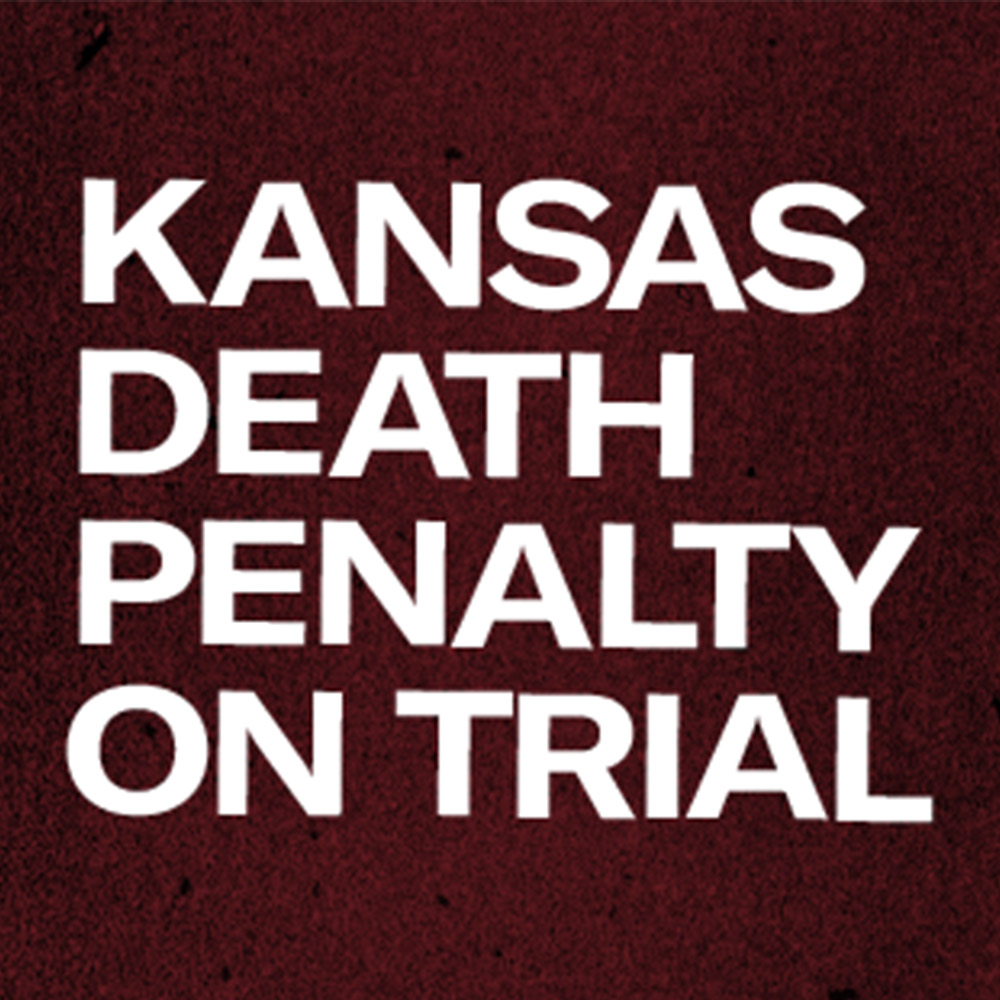
Kansas v. Kyle Young
What's at Stake
If the death penalty is racist, arbitrary and serves no valid penological purpose, does it violate the Kansas constitution?
The Sedgwick County District Court will grapple with this question at an unprecedented evidentiary hearing beginning on February 6, 2023. The ACLU, together with the ACLU of Kansas and law firm Hogan Lovells US LLP, is challenging the Kansas death penalty statute under the Kansas Constitution and United States Constitution in the case of Kansas v. Kyle Young. Mr. Young is a Black man facing a capital trial in Sedgwick County, Kansas. Prosecutors are seeking a death sentence.
Summary
Over the past two years, a group of leading state and national experts have conducted a groundbreaking factual examination of the death penalty as applied in Kansas. This new evidence shows that the death penalty in Kansas violates the state and federal Constitutions in three key ways:
1. White-washed and biased capital juries violate capital defendants’ rights to fair and impartial juries. The process of selecting juries in death penalty trials in Kansas results in juries that are uniquely discriminatory: capital juries are whiter and more guilt prone than any other criminal jury. To learn more, read the expert reports of Mona Lynch, Elisabeth Semel, Wanda Foglia and Scott Sundby.
2. The arbitrary and discriminatory imposition of the death penalty violates the prohibition on cruel or unusual punishment. The imposition of the death penalty in Kansas has been exceedingly rare: the vast majority of counties has never sought or imposed death. Where the death penalty has been imposed has much to do with racial bias and quality of counsel problems. Statewide and in Sedgwick County alike, the death penalty is far more likely in cases with White female victims. To learn more, read the expert reports of Shawn Leigh Alexander, Frank R. Baumgartner, Jeffrey Fagan, and Marc Bookman.
3. The death penalty doesn’t deter crime and is extremely costly. The lack of a valid penological purpose means the death penalty cannot withstand any level of constitutional scrutiny. Kansas has not executed anyone since 1965. New cost, deterrence, and innocence studies show the irrationality of the death penalty in Kansas. To learn more, read the expert reports of Jeffrey Fagan, Philip J. Cook, Carol Steiker, Floyd Bledsoe, and Tricia Rojo Bushnell.
Learn more about the Kansas v. Young Trial Hearing.
Learn more about the legacy of racial terror in Kansas.
Learn more about anti-Black racism in Wichita, Kansas.
Legal Documents
-
01/27/2023
Journal Entry 20CR879 -
10/20/2022
2022.10.20 Young Motion
Date Filed: 10/20/2022
-
10/20/2022
Ex. A - Mona Lynch Death Qualification Report -
10/20/2022
Ex. C - Scott Sundby Arbitrariness In Juries -
10/20/2022
Ex. D - Elisabeth Semel Batson Report -
10/20/2022
Ex. F - Jeffrey Fagan Deterrence Report -
10/20/2022
Ex. I - Tricia Rojo Bushnell Innocence Report -
10/20/2022
Ex. J - Floyd Bledsoe Innocence Report -
10/20/2022
Ex. K - Frank Baumgartner Media Report -
10/20/2022
Ex. L - Bookman and OBrien Capital Counsel Report -
10/20/2022
Ex. N - Carol Steiker ALI Study Report
Date Filed: 10/20/2022
Date Filed: 10/20/2022
Date Filed: 10/20/2022
Date Filed: 10/20/2022
Date Filed: 10/20/2022
Date Filed: 10/20/2022
Date Filed: 10/20/2022
Date Filed: 10/20/2022
Date Filed: 10/20/2022
-
04/06/2022
Report on the capacity of the Kansas State Board of Indigents’ Defense to guarantee effective representation to persons facing the death penalty - Sean O'Brien and Marc Bookman
Date Filed: 04/06/2022
-
03/28/2022
Declaration of Wanda Foglia
Date Filed: 03/28/2022
-
03/25/2022
Cost of the Death Penalty in Kansas — Philip J. Cook and Frank R. Baumgartner
Date Filed: 03/25/2022
-
03/25/2022
Capital Punishment & Deterrence — Professor Jeffrey Fagan, Columbia Law School
Date Filed: 03/25/2022
-
03/25/2022
Media Coverage of Sedgwick County Capital Prosecutions — Frank R. Baumgartner, University of North Carolina at Chapel Hill
Date Filed: 03/25/2022
-
03/25/2022
Homicides, Capital Prosecutions, and Death Sentences in Kansas, 1994 to 2021 — Frank R. Baumgartner, University of North Carolina at Chapel Hill
Date Filed: 03/25/2022
-
03/25/2022
A Brief History of Race Relations in Kansas — Shawn Leigh Alexander
Date Filed: 03/25/2022
Press Releases
ACLU Challenge to Kansas Death Penalty Begins Today

